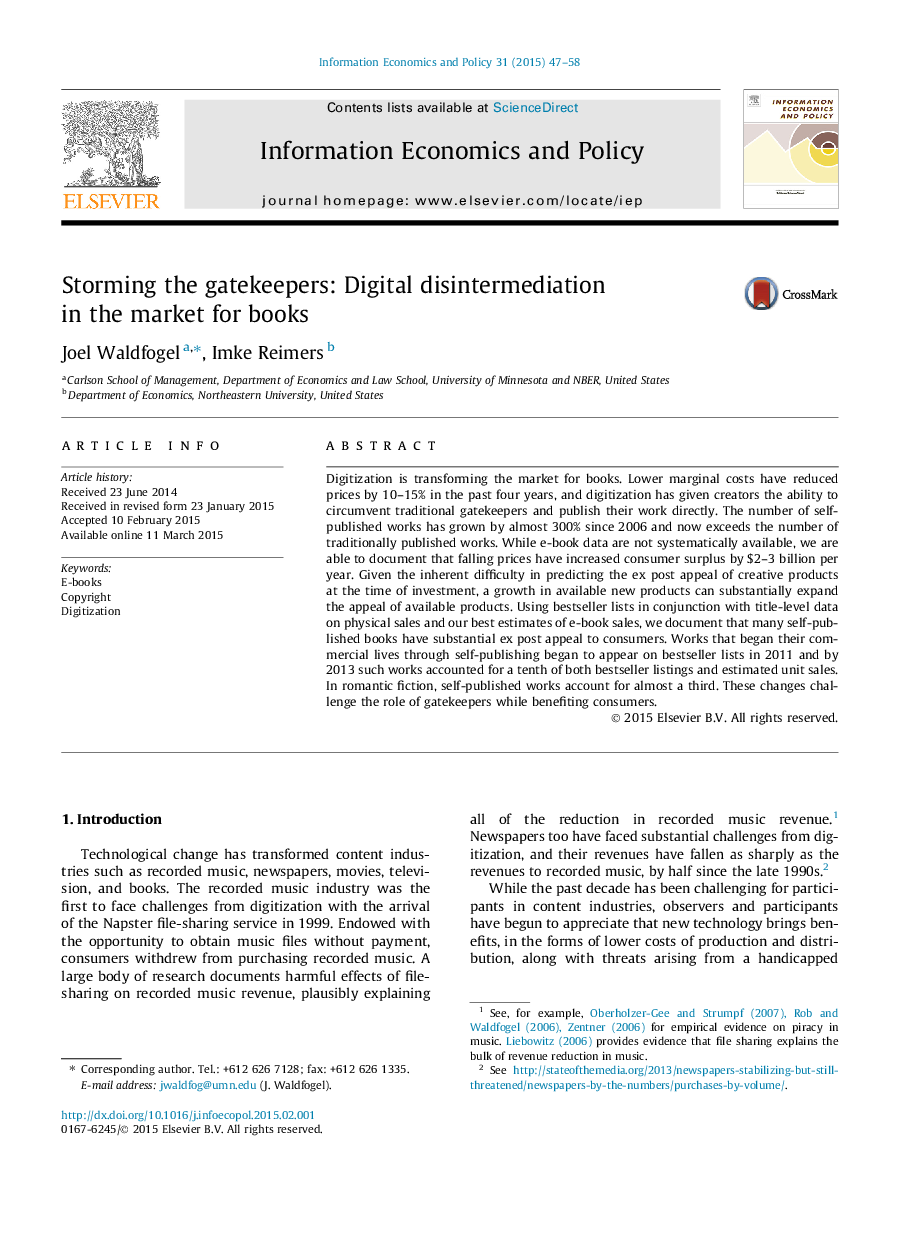| Article ID | Journal | Published Year | Pages | File Type |
|---|---|---|---|---|
| 5075688 | Information Economics and Policy | 2015 | 12 Pages |
â¢Digitization has reduced the costs of producing books.â¢The number of new books published has increased substantially.â¢Quality unpredictability means that growth in the number of new titles can lead to the introduction of some highly appealing products.â¢Self-published works make up a growing share of commercially successful works.
Digitization is transforming the market for books. Lower marginal costs have reduced prices by 10-15% in the past four years, and digitization has given creators the ability to circumvent traditional gatekeepers and publish their work directly. The number of self-published works has grown by almost 300% since 2006 and now exceeds the number of traditionally published works. While e-book data are not systematically available, we are able to document that falling prices have increased consumer surplus by $2-3 billion per year. Given the inherent difficulty in predicting the ex post appeal of creative products at the time of investment, a growth in available new products can substantially expand the appeal of available products. Using bestseller lists in conjunction with title-level data on physical sales and our best estimates of e-book sales, we document that many self-published books have substantial ex post appeal to consumers. Works that began their commercial lives through self-publishing began to appear on bestseller lists in 2011 and by 2013 such works accounted for a tenth of both bestseller listings and estimated unit sales. In romantic fiction, self-published works account for almost a third. These changes challenge the role of gatekeepers while benefiting consumers.
